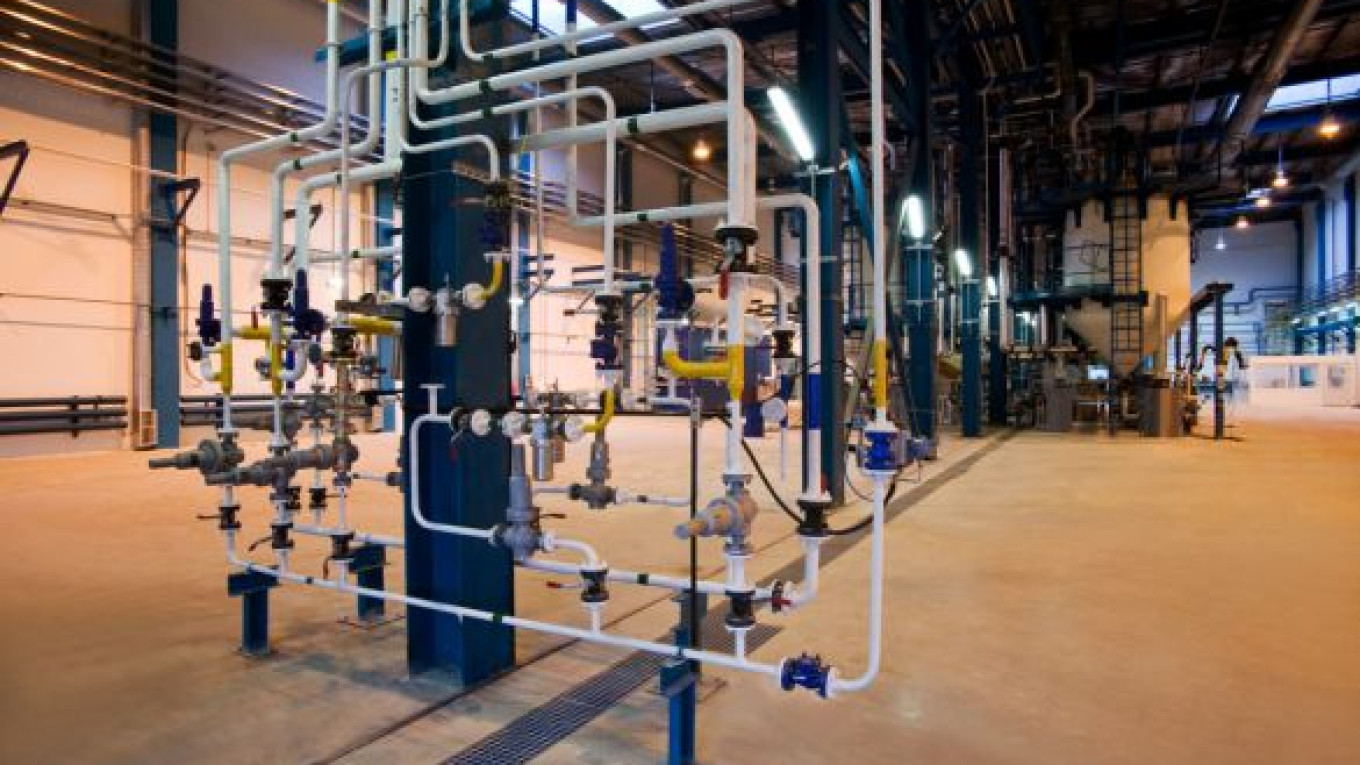A U.S. giant, Dow Chemical Co., is using its official sponsorship of the Olympic Games to gain access to government contracts and double its sales in Russia to $1.5 billion by 2012.
"We estimate that the Olympic Games will drive in excess of $100 billion of infrastructure spending over the next 10 years," George Hamilton, vice president of Olympic Operations, told The Moscow Times.
"This is very much a commercial proposition for us."
Dow is one of the "TOP sponsors" of the Olympics through 2020 in partnership with the International Olympic Committee, and along with 10 other companies including Coca-Cola, General Electric, Visa and Panasonic.
A regular traveler to all future Olympic venues — from Rio de Janeiro to London ?€” Hamilton also sees the sponsorship as an opportunity to raise Dow's brand awareness, which he admitted is lower outside the United States than it should be. Two-thirds of Dow's sales revenue comes from non-U.S. markets.
"This gives us a global platform for telling Dow's story, about how our technology and our science bring improvements to humankind every day," he said.
The sponsorship, which reportedly costs about $90 million for a four-year cycle, requires Olympic hosts, including Russia, to give Dow products preference in Olympic projects ?€” as long as they meet technical requirements and are competitive on price.
But Dow is looking beyond 2014 and toward other infrastructure projects in Russia over the next decade, including the FIFA 2018 World Cup.
"It's actually more than the games themselves," Hamilton said. "There is a great opportunity for us … to begin to make connections with government procurement."
Dow is also looking to partner with Russian firms. "We recognize," Hamilton said, "that to be truly successful here we have to maybe do some acquisition and some [joint ventures]."
Dow signed a memorandum of understanding in February with Rusnano, the state-owned nanotechnology corporation. It already has a joint venture, Dow-Izolan, in the city of Vladimir, where it makes polyurethane systems ?€” part of a greater portfolio of basic chemicals and plastic products manufactured and sold in Russia and CIS countries.
Sporting a tidily clipped pencil moustache, Hamilton was dismissive of the idea that the Russian business climate was difficult for foreign companies, describing it as "very supportive." Dow has been present in Russia for nearly 40 years.
Hamilton said he did not agree with U.S. Vice President Joe Biden's criticism of the Russian government, made in Moscow two weeks ago, of cases like that of jailed tycoon Mikhail Khodorkovsky and the negative impact they have on the investment environment.
"I wish he had consulted me before he said some of the things he said," Hamilton said, with a half-smile.
On a corporate level, however, Dow is strongly backing Russia's long-delayed entry into the World Trade Organization ?€” one of the issues on which Biden expressed his support.
"Once the WTO doors open for Russia," said Marko Blagovic, Dow's general manager in Russia, "this will accelerate the country's integration with the rules and opportunities of the broader global economy."
Hamilton downplayed the issue of corruption surrounding the construction of the Olympic venues in Sochi.
"Is it there?" he said. "Probably. But we do not see this as an issue for Dow."
One notorious, though unsuccessful, entrant for a recent competition to choose the mascots for the 2014 Winter Olympics was "Pila," or "Saw." In Russian, the theft of state money is described literally as "sawing the budget."
Hamilton said, however, that in all his 33 years with Dow, the company's sponsorship of the Olympics was "actually the most complex business which I have ever been involved in."
"The only thing that makes me a bit nervous," he added, "is not knowing what I don't know."
A Message from The Moscow Times:
Dear readers,
We are facing unprecedented challenges. Russia's Prosecutor General's Office has designated The Moscow Times as an "undesirable" organization, criminalizing our work and putting our staff at risk of prosecution. This follows our earlier unjust labeling as a "foreign agent."
These actions are direct attempts to silence independent journalism in Russia. The authorities claim our work "discredits the decisions of the Russian leadership." We see things differently: we strive to provide accurate, unbiased reporting on Russia.
We, the journalists of The Moscow Times, refuse to be silenced. But to continue our work, we need your help.
Your support, no matter how small, makes a world of difference. If you can, please support us monthly starting from just $2. It's quick to set up, and every contribution makes a significant impact.
By supporting The Moscow Times, you're defending open, independent journalism in the face of repression. Thank you for standing with us.
Remind me later.


